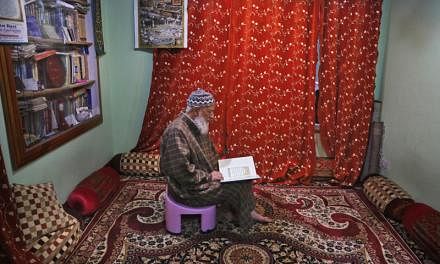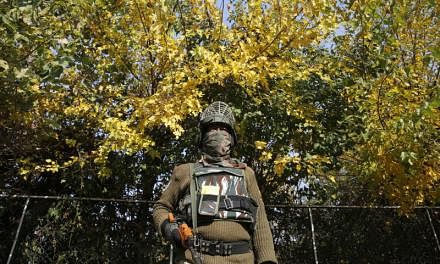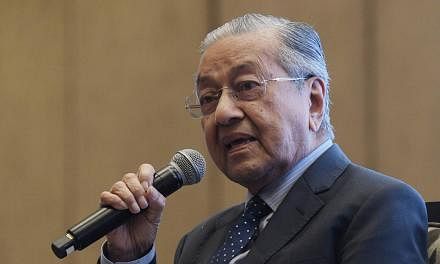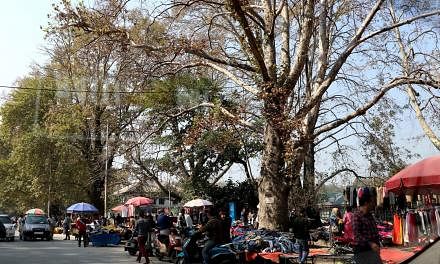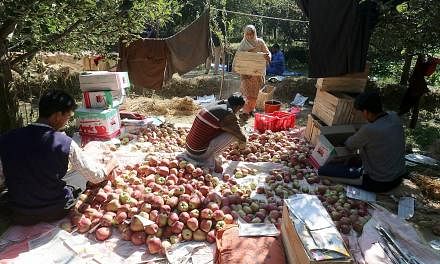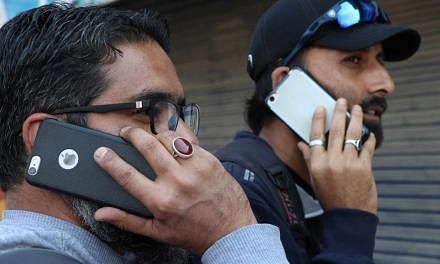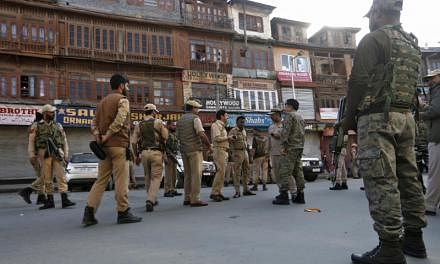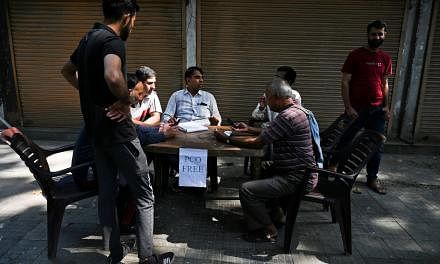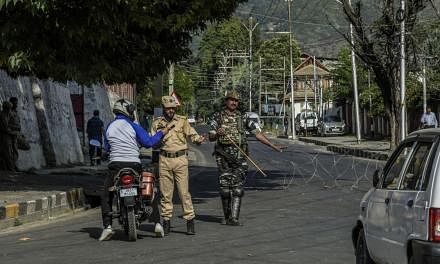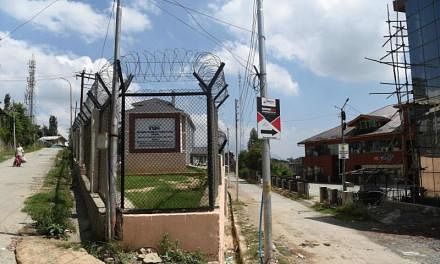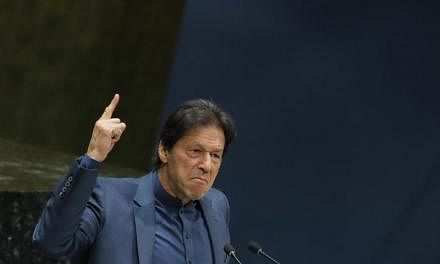SRINAGAR (REUTERS) - A month after India withdrew contested Kashmir's autonomy, locked it down with thousands of additional troops and made mass arrests, residents are resisting attempts by the authorities to show some signs of normalcy returning in the Muslim-majority valley.
On Aug 5, Prime Minister Narendra Modi revoked special rights for Jammu and Kashmir state, striking down longstanding constitutional provisions for the Himalayan region, which is also claimed by neighbouring Pakistan.
To dampen the possibility of widespread protests, India flooded Kashmir - already one of the world's most militarised zones - with troops, imposed severe movement restrictions, and snapped all telephone, mobile phone and Internet connections.
Thousands of people were arrested.
New Delhi has since eased some of the curbs although no one detained has been freed and mobile and Internet connections remain suspended.
Officials in Jammu and Kashmir's summer capital Srinagar say that 90 per cent of the Kashmir valley is free of restrictions on daytime movement, some landline phone connections have been restored and thousands of schools have reopened.
However, checkpoints remain in place and communication restrictions make reporting from the region difficult.
Despite the partial relaxation, an informal but widespread boycott by students, shopkeepers and public and private sector workers is taking place across the valley, aimed at protesting against New Delhi, according to interviews with seven government officials and dozens of residents of the valley.
"For us, our identity at stake and its safeguarding is our priority," said Mr Shabir Ahmad, a shopkeeper from the old quarter, or downtown, Srinagar. "Let them restore it and we will restart our businesses."
The informal civil disobedience movement has sprung up alongside small but regular street protests by stone-throwing crowds that have been quickly quashed by security forces with tear gas and pellet guns.
SELF-IMPOSED STRIKE
In previous phases of protests in Kashmir, separatist groups would issue official calls for shutdowns and protests.
This time, however, separatist leaders - who either want independence for Kashmir, or support joining Pakistan - have been detained alongside mainstream politicians, including three former chief ministers and hundreds of other civil society leaders.
In the commercial areas of downtown Srinagar, the vast majority of shops remain shuttered.
Despite security forces asking owners to return to normal opening hours, many have refused.
"We were opening shops in the evenings for people," said Mr Mohammad Ayub, a Srinagar shopkeeper. "(But) the troops tell us either to open the shops for the full day or don't open in the evenings."
Mr Rohit Kansal, the official spokesman for the Jammu and Kashmir state government, blamed "anti-national" forces for preventing shops from opening.
"Security forces have taken note of it," he said.
SCHOOLS, GOVERNMENT SHUTDOWN
Attendance in major government offices in Srinagar is around 50 per cent and those in smaller, subordinate offices in the city is substantially lower, a state government official said, declining to be named as he was not authorised to speak to the media.
At an office of the state housing and urban development department in western Srinagar, only 30 out of around 300 staff are in attendance on most days, another official said.
"Only those who live nearby report to the office. The others come in once in a while," the official said.
Government workers employed to clean Srinagar's iconic Dal Lake have not turned up for work in several weeks, officials said, and the water's surface has become clogged with weeds.
Many schools remain empty.
"How can I send my children to school? There is a clampdown and we are concerned for the safety of our wards," said Mr Javed Ahmad, a Srinagar parent.
Mr Kansal said that 4,000 schools in Kashmir were now functional, and that attendance is improving, although it remains low in some areas.
RESTRICTIONS REMAIN
The shutdown and the restrictions still in place are having an impact across all areas of society.
With tourists avoiding the region, hotel owners say occupancy rates are close to zero.
Srinagar's historic Jamia Masjid mosque has been closed for a month.
Kashmir's postal service is heavily disrupted, and online retailers, including Amazon, say their operations in Jammu and Kashmir remain suspended.
Pharmacists say there are shortages of drugs at some private pharmacies due to logistical issues, particularly thyroid, diabetes, anti-depressant and cancer drugs.
A Reuters reporter saw a chemist in the Jawahar Nagar area of Srinagar turn away half a dozen customers asking for common drugs on Wednesday (Sept 4), saying he didn't have any left.

